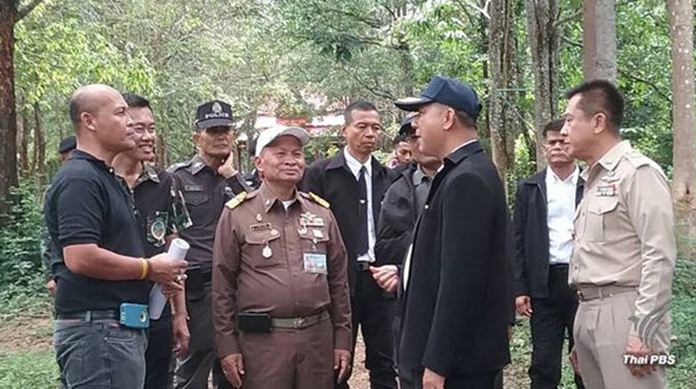The Bureau of the Royal Household has selected four dead-standing sandalwood trees for use in the royal cremation ceremony of HM the late King Bhumibol Adulyadej.

Director-general of the Department of National Parks, Wildlife and Plant Conservation Tanya Netithammakul disclosed that director of the Royal Ceremonial Division of Bureau of the Royal Household Chamlong Yingnuek, the deputy governor of Prachuap Khiri Khan Somchai Bamrungsap, and representatives of the Forestry Department, the Department of Public Works, and Town & Country Planning, and the chief of Kui Buri district office, have inspected dead-standing sandalwood trees in the Kui Buri national park for use in the royal cremation ceremony.
He said his department has selected 19 dead-standing trees for choosing by the Bureau of the Royal Household.
After the inspection of the selected trees, the Bureau later chose four of them for use, No 11, 12, 14 and 15.
He said that a worshipping ceremony to cut the trees at the national park will be held on November 14 at 14.09-14.39 hours.
Sandalwood is a fragrant and tropical tree, and it has been in use since time immemorial. It is an evergreen and parasitic or semi-parasitic medium sized tree and grows up to 20m high. It grows in dry and deciduous forests.
Sandalwood has a truckload of religious value.
Hindus use this in a funeral pyre, a paste of this in worship, sacrifice, as wood for making idols and auspicious ceremonies. Buddhism also has significant use of this twig. The heartwood is the most important part of the tree.




